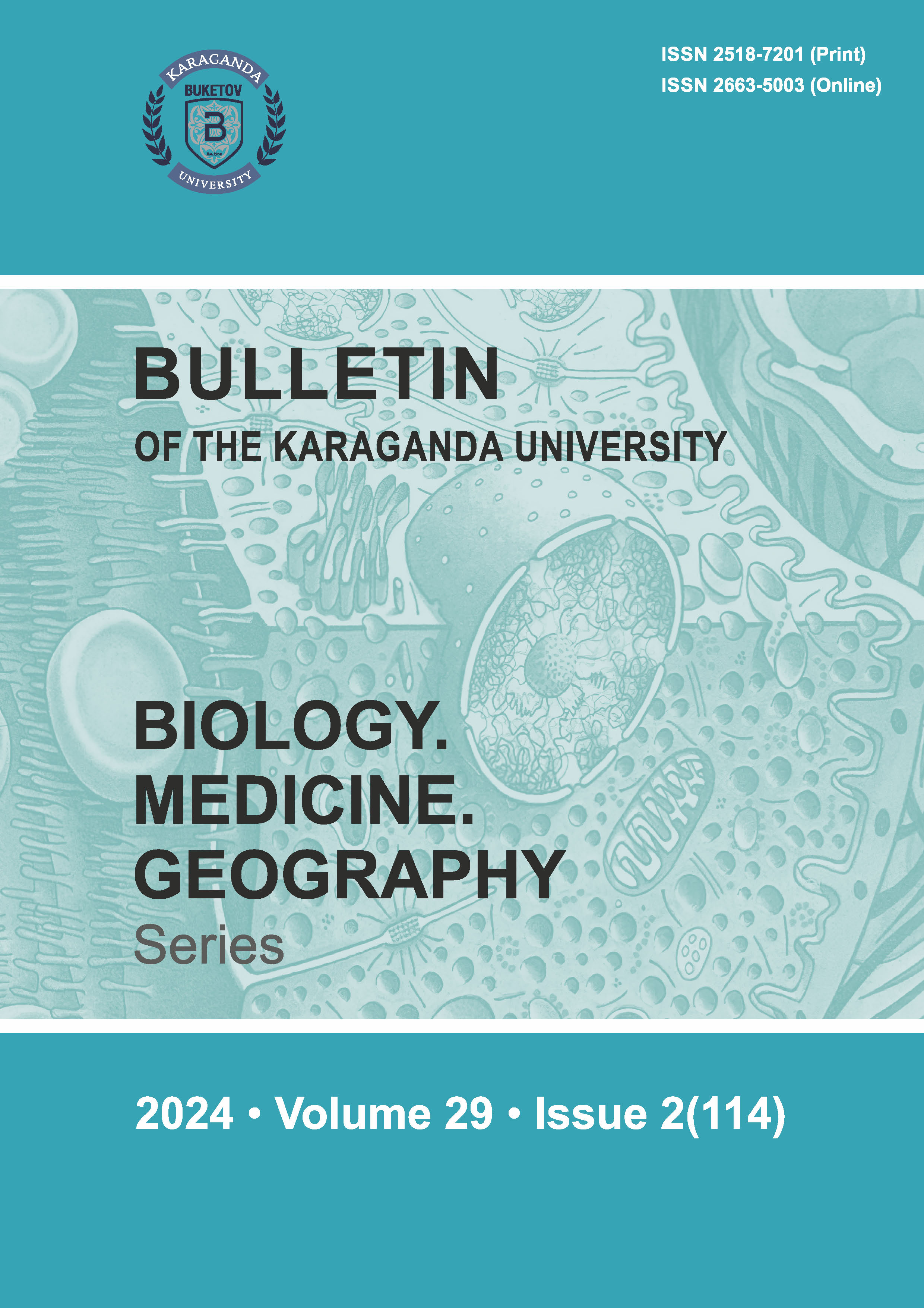Study of the characteristics of soil mixtures obtained by vermicomposting
DOI:
https://doi.org/10.31489/2024bmg2/7-13Keywords:
vermiculture, vermicompost, Eisenia fetida, biological properties, physicochemical factorsAbstract
Vermicomposting is a sustainable and environmentally friendly element of organic waste management. Being a biological processing method involving a complex of soil organisms, vermicomposting requires the selection of conditions for the cultivation of transformer organisms, primarily dung worms (lat. Eisenia fetida). The duration and quality of the formation of the final product are influenced by the physicochemical conditions of worm cultivation, the composition of the starting material, methods of its placement, etc. We studied the influence of the composition of the substrate and the conditions of cultivation of Eisenia fetida on the characteristics of the resulting vermicompost in conditions of laboratory experiment. The biological characteristics of soil mixtures obtained by vermicomposting were studied, taking into account the physicochemical factors (humidity, pH, temperature) of their formation. It has been shown that the composition of the mixture significantly affects the characteristics of the vermicomposting process and the biological properties of the resulting product.



